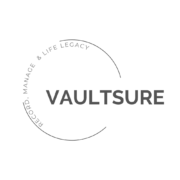How to Organize Your Record System
Effective record-keeping is crucial for managing both personal and business documents. Here’s a practical approach to setting up a well-organized record system:
Everyday Essentials
Carry essential records with you at all times. Your wallet, billfold, or purse serves as a compact record system. Ensure it contains:
- Identification (driver’s license, emergency contact)
- Major credit cards (limit to one or two)
- Health, accident, and auto insurance information
- Details on allergies, health issues, and blood type
Setting Up Your Filing System
For managing documents at home or in your business, establish a straightforward filing system. The goal is to create a space where you can easily store and retrieve your files—no need for an elaborate desk. Options include:
- A metal filing cabinet
- An under-the-bed storage chest
- Cardboard boxes
- Accordion folders
Organize your files into three main categories:
- Current Records
Include:- Employment records
- Credit card information
- Insurance policies
- Family health records
- Warranties and guarantees
- Education records
- Bank statements
- Household inventory
- Tax records
- Cancelled checks
- Inactive Records
Store documents from the Current Records that are older than three years. Review and transfer items from Current to Inactive files annually, ideally when preparing your tax forms. - Permanent Records
Keep crucial documents in a safe-deposit box or a fireproof, waterproof storage container. These should include:- Ownership papers (real estate deeds, car titles, stock certificates)
- Birth, adoption, marriage, and death certificates
- Legal documents (divorce decrees, property settlements)
- Contracts
- Household inventory
- Wills
- Advance directives (living wills, durable powers of attorney)
Customizing Your System
Tailor your file folder labels and categories to fit your family’s specific needs. The system should allow someone unfamiliar with it to easily locate important documents, maintain records, and prepare reports if needed.
Storing Very Important Papers (VIPs)
Store VIPs in a secure location:
- Safe-deposit box at a financial institution
- Home safe that is both fireproof and waterproof
VIPs include:
- Ownership documentation
- Personal certificates (birth, marriage, etc.)
- Legal and contractual papers
- Wills and advance directives
Note: Routine documents like bank statements, canceled checks, and medical histories generally don’t need such high-level security.
How Long to Keep Tax Records
- Three Years: Retain records of income or deduction expenses for three years, in line with the IRS’s statute of limitations on auditing.
- Four Years: If income averaging applies, keep records for four base years.
- Six Years: Maintain records if you failed to report more than 25% of gross income.
- Indefinitely: Keep records if you filed a fraudulent return or did not file at all. Also, retain documents showing the original cost or value of property and home improvement costs.
Tax Document Retrieval:
- Tax Return Transcripts: Show most line items from your filed tax return. Useful for loans or mortgages.
- Tax Account Transcripts: Display any adjustments made after filing.
Request transcripts by phone or mail using IRS Form 4506-T. They are free and available for the current and three prior calendar years. Allow two weeks for delivery.
For photocopies of tax returns, use Form 4506, available for the current and past six years, with a fee of $50 per tax period. Allow 75 days for delivery.
Where to Keep Your Records
Organize your records in:
- Home Filing System: For current and inactive files.
- Safe-Deposit Box or Fireproof Home Storage: For permanent records.
- Wallets and Billfolds: For everyday essentials.
- Vehicles: For documents related to the car.
By setting up a structured record-keeping system, you ensure that all important documents are organized and easily accessible when needed.
